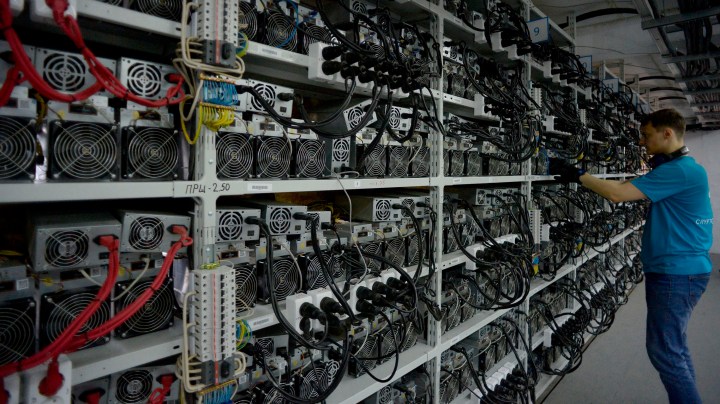
Sanctions and strong ruble challenge Russia’s crypto mining industry
Sanctions and strong ruble challenge Russia’s crypto mining industry

To mine bitcoin, it really helps to have a cold climate — to keep the computers cool — and cheap energy to power them. Russia has both. So last year, Denis Rusinovich, a bitcoin miner and co-founder of the cryptocurrency mining advisory service Maveric Group, thought seriously about starting a mining business in Russia. Rusinovich was born in Russia but is a British citizen.
“Purely from a bitcoin mining perspective, definitely Russia was a top destination,” Rusinovich said. “But that was last year.”
This year, after Russia invaded Ukraine, things look completely different. Sanctions have isolated Russia from the global economy; it’s hard to launch any business there now. But in addition to the geopolitical situation, a big deal breaker for Rusinovich is the ruble’s strength.
The Russian currency climbed to a seven-year high against the dollar this summer despite punishing sanctions. That’s partially due to the Russian government’s attempts to protect the ruble from sanctions, as well as surging oil prices. Doing business in Russia is more expensive now.
“The stronger ruble, I think it’s definitely reducing the potential for any mining operations in Russia,” Rusinovich said.

The price of bitcoin has plunged this summer. But when bitcoin tumbled last year, mining in Russia wasn’t strongly affected, said Alexander Neumueller of the Cambridge Bitcoin Electricity Consumption Index.
“Russia — in terms of its mining activity — is relatively stable. You don’t have these large fluctuations,” Neumueller said.
CBECI has not released data about how bitcoin’s recent slide has affected mining in Russia, but Neumueller said that at the start of this crash, things looked different there.
“We saw already that Russia is slightly declining in terms of its actual mining activity,” he said.
Now, some Russian miners are trying to move their operations to nearby countries. Sanzhar Amangeldy is a lawyer representing bitcoin miners in Kazakhstan. He said some Russian miners approached his firm about setting up mining operations in Kazakhstan, but they appeared to be involved in criminal activity.
“We declined their offers,” Amangeldy said.
Some U.S. lawmakers have warned that crypto mining could help criminals — and the Russian government — evade sanctions. But the risk is low, said Jonathan Levin with crypto research platform Chainalysis.
“The scale that you would need to build this at is somewhat massive in order to move the needle on sanctions evasions.”
The latest data from the CBECI suggests the electricity used by bitcoin miners globally has fallen since early June.
There’s a lot happening in the world. Through it all, Marketplace is here for you.
You rely on Marketplace to break down the world’s events and tell you how it affects you in a fact-based, approachable way. We rely on your financial support to keep making that possible.
Your donation today powers the independent journalism that you rely on. For just $5/month, you can help sustain Marketplace so we can keep reporting on the things that matter to you.

















